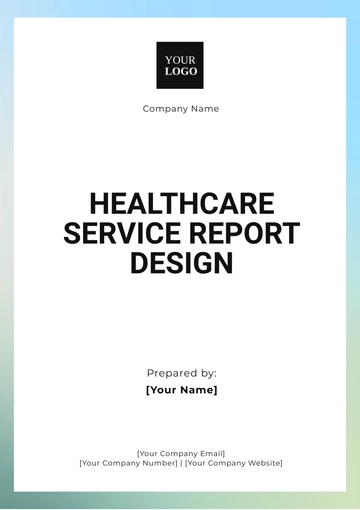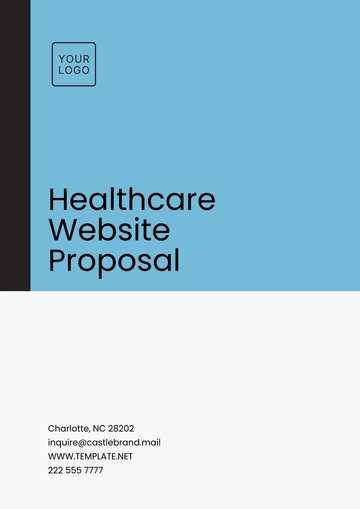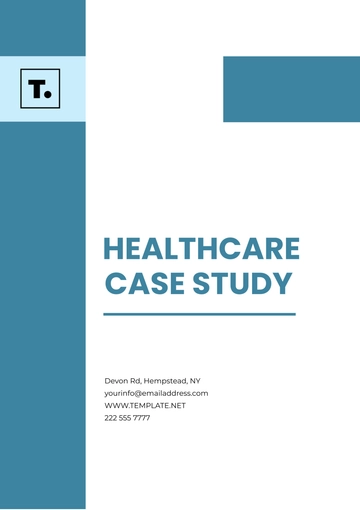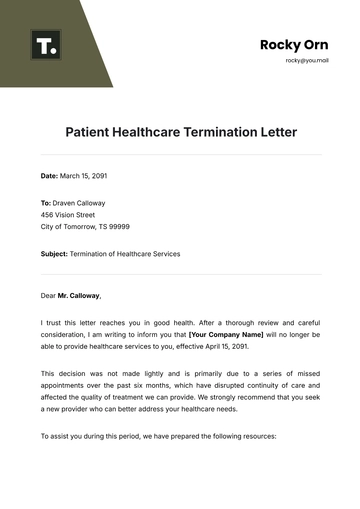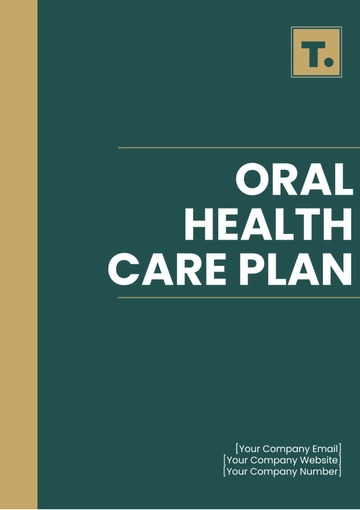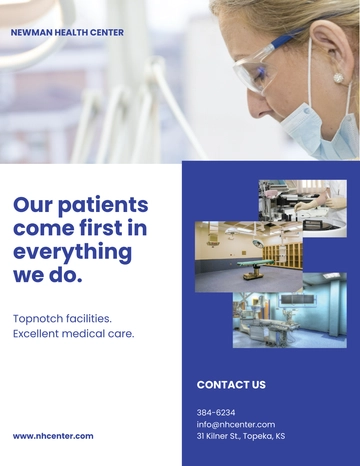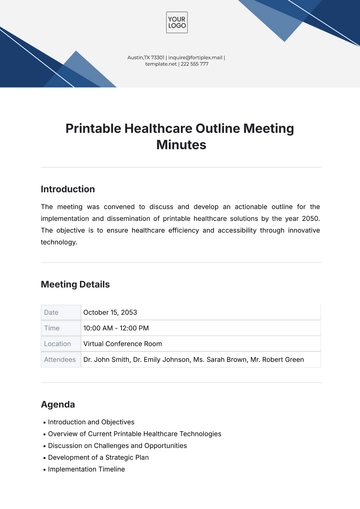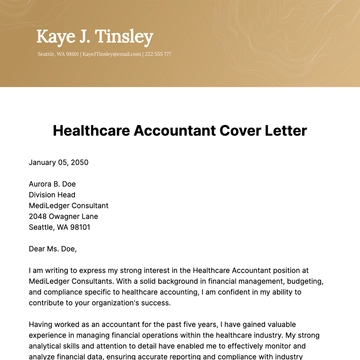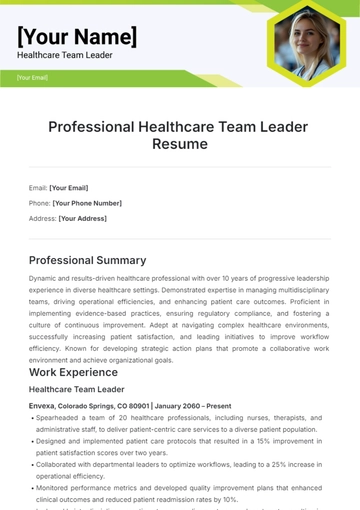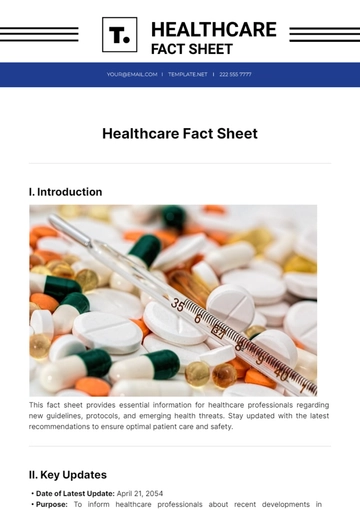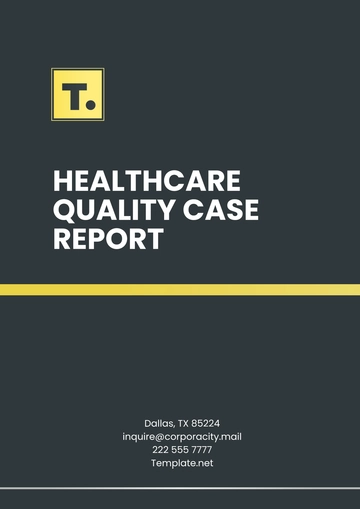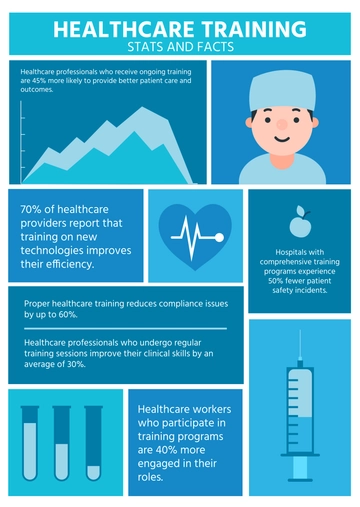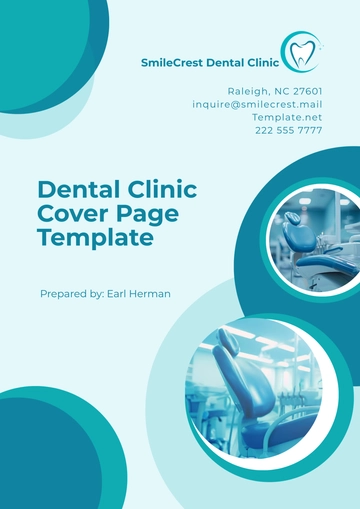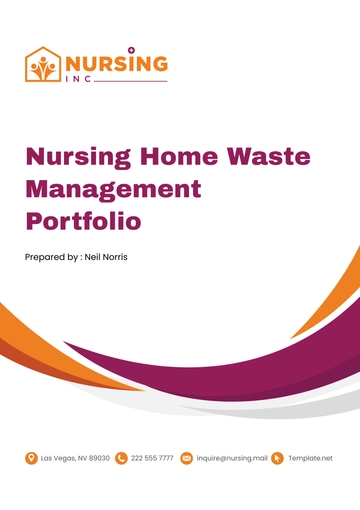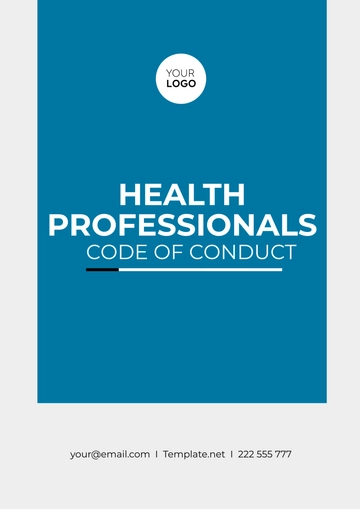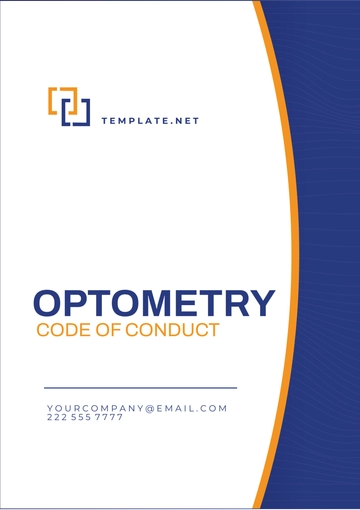Free Healthcare KRA
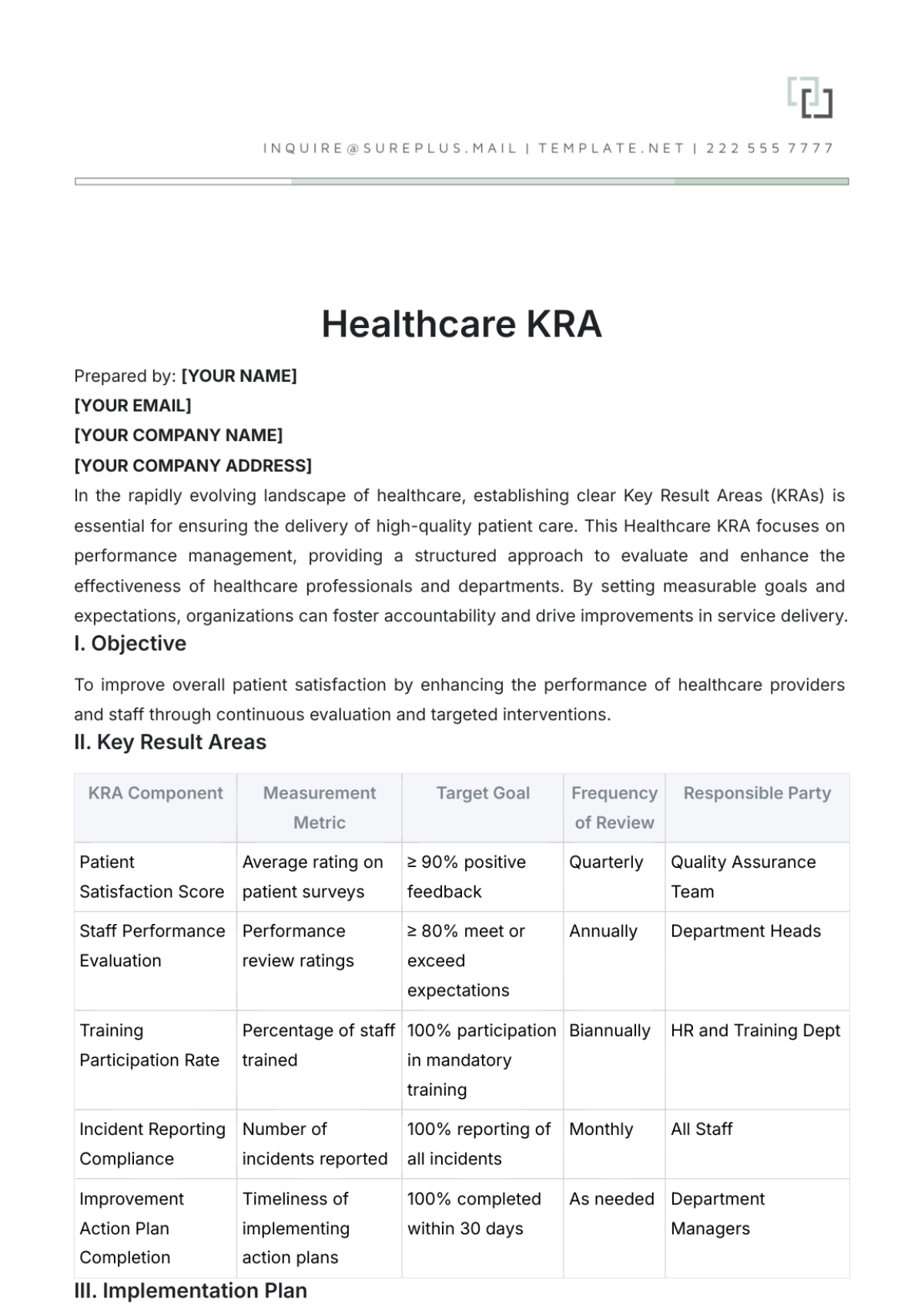
Prepared by: [YOUR NAME]
[YOUR EMAIL]
[YOUR COMPANY NAME]
[YOUR COMPANY ADDRESS]
In the rapidly evolving landscape of healthcare, establishing clear Key Result Areas (KRAs) is essential for ensuring the delivery of high-quality patient care. This Healthcare KRA focuses on performance management, providing a structured approach to evaluate and enhance the effectiveness of healthcare professionals and departments. By setting measurable goals and expectations, organizations can foster accountability and drive improvements in service delivery.
I. Objective
To improve overall patient satisfaction by enhancing the performance of healthcare providers and staff through continuous evaluation and targeted interventions.
II. Key Result Areas
KRA Component | Measurement Metric | Target Goal | Frequency of Review | Responsible Party |
|---|---|---|---|---|
Patient Satisfaction Score | Average rating on patient surveys | ≥ 90% positive feedback | Quarterly | Quality Assurance Team |
Staff Performance Evaluation | Performance review ratings | ≥ 80% meet or exceed expectations | Annually | Department Heads |
Training Participation Rate | Percentage of staff trained | 100% participation in mandatory training | Biannually | HR and Training Dept |
Incident Reporting Compliance | Number of incidents reported | 100% reporting of all incidents | Monthly | All Staff |
Improvement Action Plan Completion | Timeliness of implementing action plans | 100% completed within 30 days | As needed | Department Managers |
III. Implementation Plan
Establish Baselines: Conduct initial assessments to establish baseline metrics for patient satisfaction and staff performance.
Set Goals: Define clear, measurable goals for each KRA component to drive improvements.
Monitor Progress: Utilize regular reviews to monitor progress against the established metrics and adjust strategies as needed.
Provide Feedback: Implement a feedback loop to communicate performance results to staff, highlighting areas of success and opportunities for improvement.
Continuous Training: Ensure ongoing training and professional development to equip staff with the skills necessary to meet performance goals.
IV. Timeline
Task | Start Date | End Date | Responsible Party |
|---|---|---|---|
Baseline Assessment | January 5, 2050 | February 5, 2050 | Quality Assurance Team |
Goal Setting | February 6, 2050 | February 20, 2050 | Senior Management |
Initial Monitoring | March 1, 2050 | Ongoing | All Departments |
First Quarterly Review | April 10, 2050 | April 10, 2050 | Quality Assurance Team |
Annual Review | December 1, 2050 | December 15, 2050 | Senior Management |
V. Conclusion
By implementing a comprehensive Healthcare KRA focused on performance management, healthcare organizations can enhance the quality of care provided to patients while fostering a culture of accountability and continuous improvement among staff. This strategic approach not only aligns individual performance with organizational goals but also ultimately contributes to better health outcomes and increased patient satisfaction.
- 100% Customizable, free editor
- Access 1 Million+ Templates, photo’s & graphics
- Download or share as a template
- Click and replace photos, graphics, text, backgrounds
- Resize, crop, AI write & more
- Access advanced editor
The Healthcare KRA Template available at Template.net is an essential resource for professionals looking to set clear performance metrics. This customizable and editable template allows organizations to tailor key responsibility areas effectively. Utilize our AI Editor Tool to make adjustments effortlessly, ensuring alignment with your specific healthcare goals and enhancing overall productivity.
